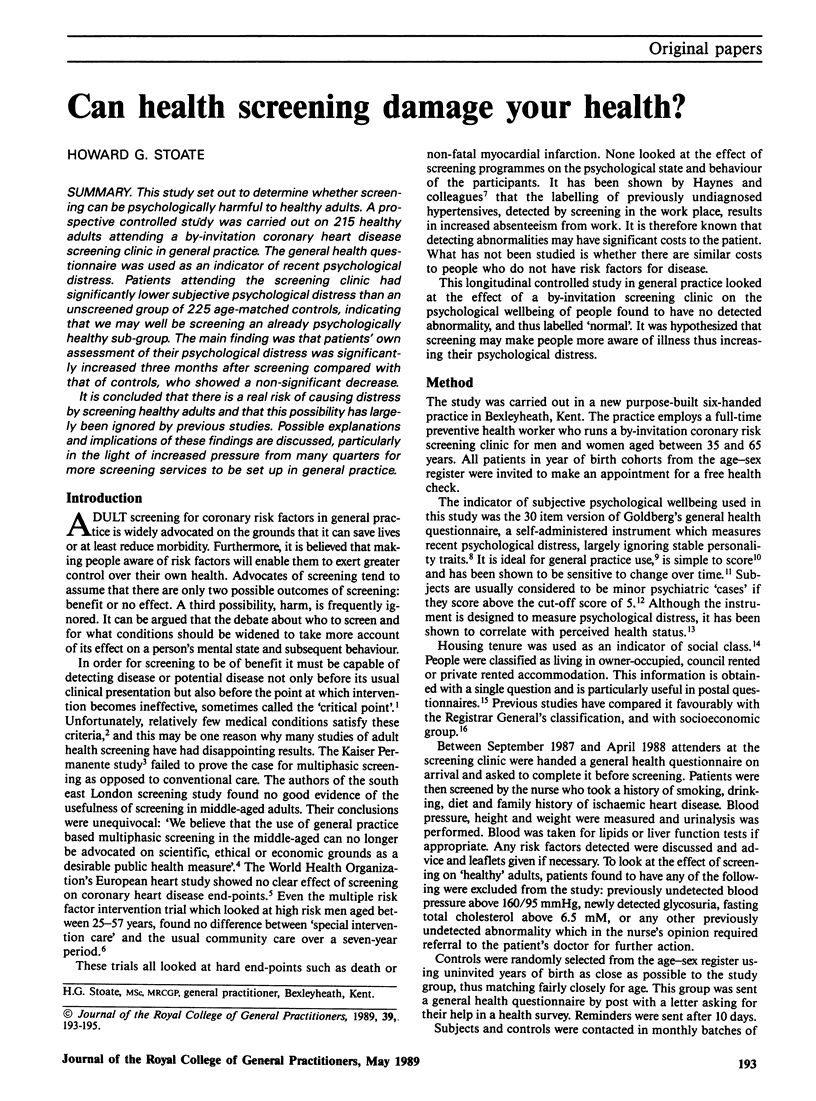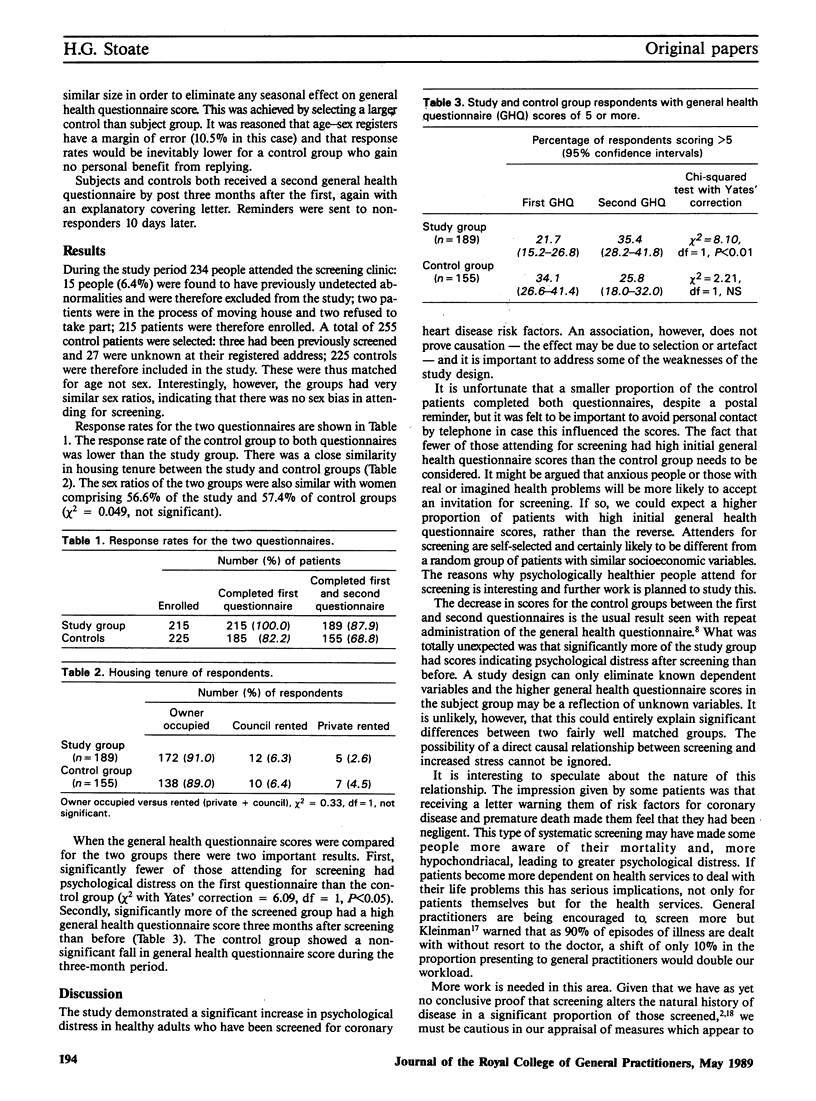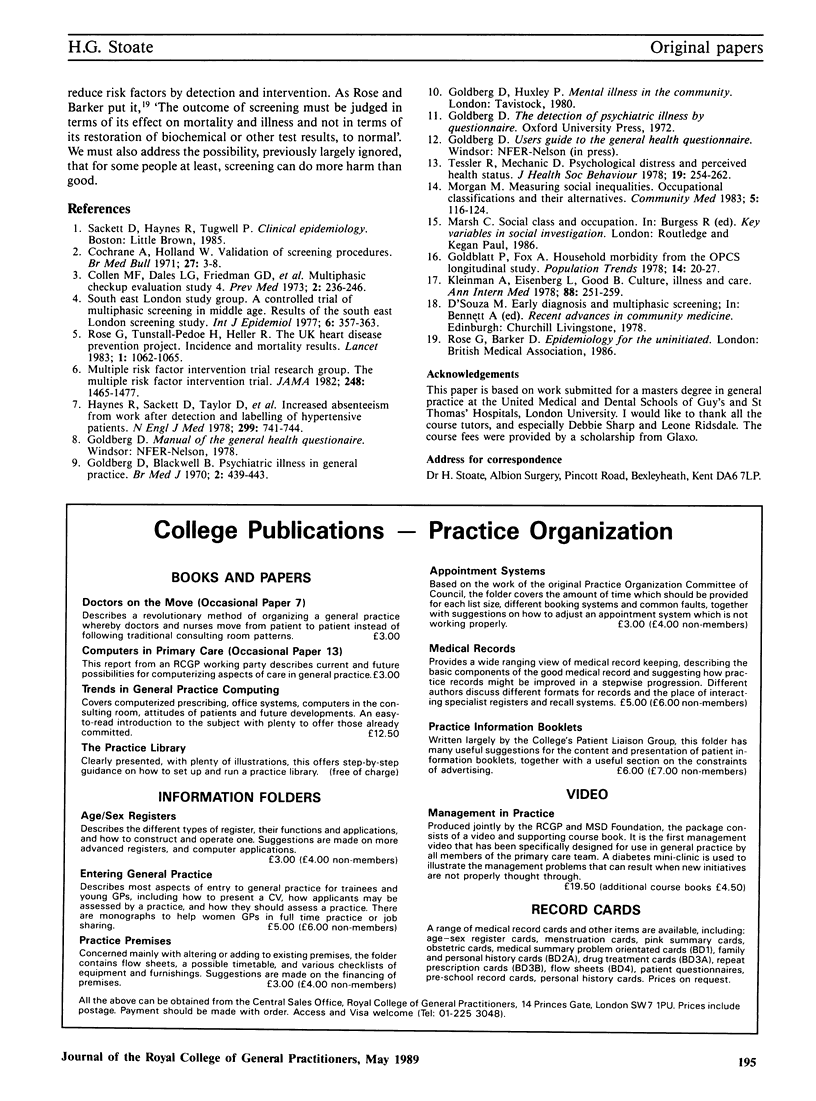Abstract
This study set out to determine whether screening can be psychologically harmful to healthy adults. A prospective controlled study was carried out on 215 healthy adults attending a by-invitation coronary heart disease screening clinic in general practice. The general health questionnaire was used as an indicator of recent psychological distress. Patients attending the screening clinic had significantly lower subjective psychological distress than an unscreened group of 225 age-matched controls, indicating that we may well be screening an already psychologically healthy sub-group. The main finding was that patients' own assessment of their psychological distress was significantly increased three months after screening compared with that of controls, who showed a non-significant decrease. It is concluded that there is a real risk of causing distress by screening healthy adults and that this possibility has largely been ignored by previous studies. Possible explanations and implications of these findings are discussed, particularly in the light of increased pressure from many quarters for more screening services to be set up in general practice.
Full text
PDF


Selected References
These references are in PubMed. This may not be the complete list of references from this article.
- Cochrane A. L., Holland W. W. Validation of screening procedures. Br Med Bull. 1971 Jan;27(1):3–8. doi: 10.1093/oxfordjournals.bmb.a070810. [DOI] [PubMed] [Google Scholar]
- Collen M. F., Dales L. G., Friedman G. D., Flagle C. D., Feldman R., Siegelaub A. B. Multiphasic checkup evaluation study. 4. Preliminary cost benefit analysis for middle-aged men. Prev Med. 1973 Jun;2(2):236–246. doi: 10.1016/0091-7435(73)90067-4. [DOI] [PubMed] [Google Scholar]
- Goldberg D. P., Blackwell B. Psychiatric illness in general practice. A detailed study using a new method of case identification. Br Med J. 1970 May 23;1(5707):439–443. doi: 10.1136/bmj.2.5707.439. [DOI] [PMC free article] [PubMed] [Google Scholar]
- Haynes R. B., Sackett D. L., Taylor D. W., Gibson E. S., Johnson A. L. Increased absenteeism from work after detection and labeling of hypertensive patients. N Engl J Med. 1978 Oct 5;299(14):741–744. doi: 10.1056/NEJM197810052991403. [DOI] [PubMed] [Google Scholar]
- Kleinman A., Eisenberg L., Good B. Culture, illness, and care: clinical lessons from anthropologic and cross-cultural research. Ann Intern Med. 1978 Feb;88(2):251–258. doi: 10.7326/0003-4819-88-2-251. [DOI] [PubMed] [Google Scholar]
- Morgan M. Measuring social inequality: occupational classifications and their alternatives. Community Med. 1983 May;5(2):116–124. [PubMed] [Google Scholar]
- Rose G., Tunstall-Pedoe H. D., Heller R. F. UK heart disease prevention project: incidence and mortality results. Lancet. 1983 May 14;1(8333):1062–1066. doi: 10.1016/s0140-6736(83)91907-4. [DOI] [PubMed] [Google Scholar]


